- Learning time
- 40 minutes
- First play time
- 90 minutes
Euphoria: Build a Better Dystopia
Designed by: Jamey Stegmaier
In Euphoria, you are mid-level managers in some far-off (hopefully) distant future where mankind is slaves to the system. Your goal is to engineer that system into your favour, by keeping your minions dozy, yet satisfied enough to do your bidding.
The board is placed centrally, showing the four factions and the commodity they control: Icarites (who live in the clouds both figuratively and metaphorically; controlling as they do the supply of the narcotic Bliss – that keeps workers happy) Subterrans (who control the water supply) Wastelanders (who produce food) and Euphorians (who dwell in the city, and control the power supply).
Each player starts with two character cards, one of which they keep hidden. The character cards relate to one of the four factions, and it’s the faction they ally to you want to help support during the game. Also in your control are two dice, representing your workers. On your turn you can either place a worker (two, if you have a matching pair) or return workers to your supply from the board.
Placing a worker is simple. Simply put it on one of the available spaces on the board, pay the cost to do so if applicable, and take the reward: it might be one of the four commodities above, but it might also be the resources of stone, clay or gold. Or it might even be artefact cards, representing iconic things from society’s distant past… What your worker is doing is helping that faction out; either generating the commodity they produce, helping them dig a tunnel, or helping build a market where trade can take place.
All of which translates into your gathering commodities and resources in order to spend them on more rewarding moves later.
If you have no workers to place – or don’t want to place them – you can take as many workers as you want off the board instead. Whenever workers come off the board, either because you removed them or they got bumped off by someone else’s worker, they get re-rolled. The reason for this is that there’s a couple of other currencies at play in the game as well: knowledge (the sum total of all your dice not on the board needs to stay below 16, or you lose a worker) and morale (the higher it is, the more artefact cards you may hold in your hand).
Certain actions your workers take allow you to place a star – players begin the game with ten each, and the game is essentially a race to be the first player to get their tenth star down on the board, in order to win.
There’s more to Euphoria than we’ve described here – character cards have powers, you can generate extra workers (but more collective knowledge means more risk of losing a worker!) you can generate extra character cards, plus two or three more things to consider. There’s a lot going on!
The guru's verdict
-
Take That!
Take That!
There's no combat, but there are some small adversarial opportunities.
-
Fidget Factor!
Fidget Factor!
Once you know the game, Euphoria is reasonably fast-moving. Getting to know it may take 3 or 4 plays rather than one, however, and the game may invite the odd lull depending on who's playing.
-
Brain Burn!
Brain Burn!
Moderate. After that first head-scratchy play you'll see there are opportunities to play strategically and tactically, so
-
Again Again!
Again Again!
Dice ensure a degree of randomness, but there's also a large deck of character cards to give some variety.

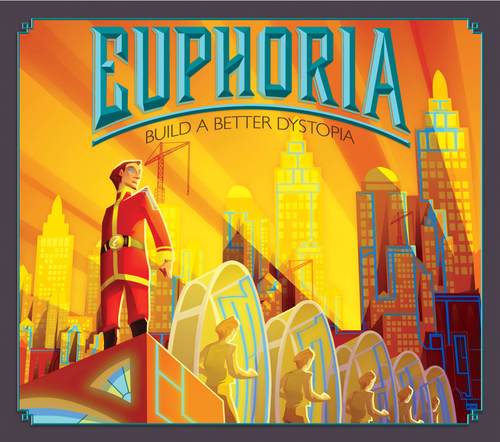

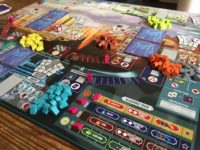


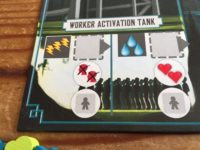

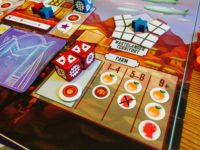


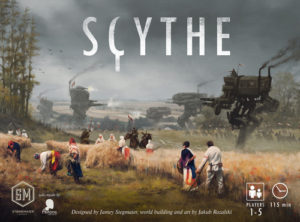

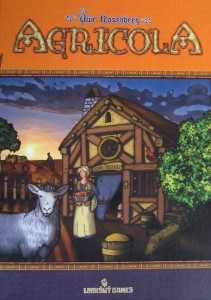

Sam says
At time of writing I've only played Euphoria twice, but I'm intrigued to try it again. I like the push-your-luck element of more workers meaning more risk of desertion, and I love how the game demands you think on your feet: your plans may have to adapt and change as you see what the other players are up to. The hidden character cards also adds a little intrigue, and although I don't think the game is as instantly accessible or thematic as a worker-placement game like Lords of Waterdeep, what it has in spades is a puzzle element that will delight many.